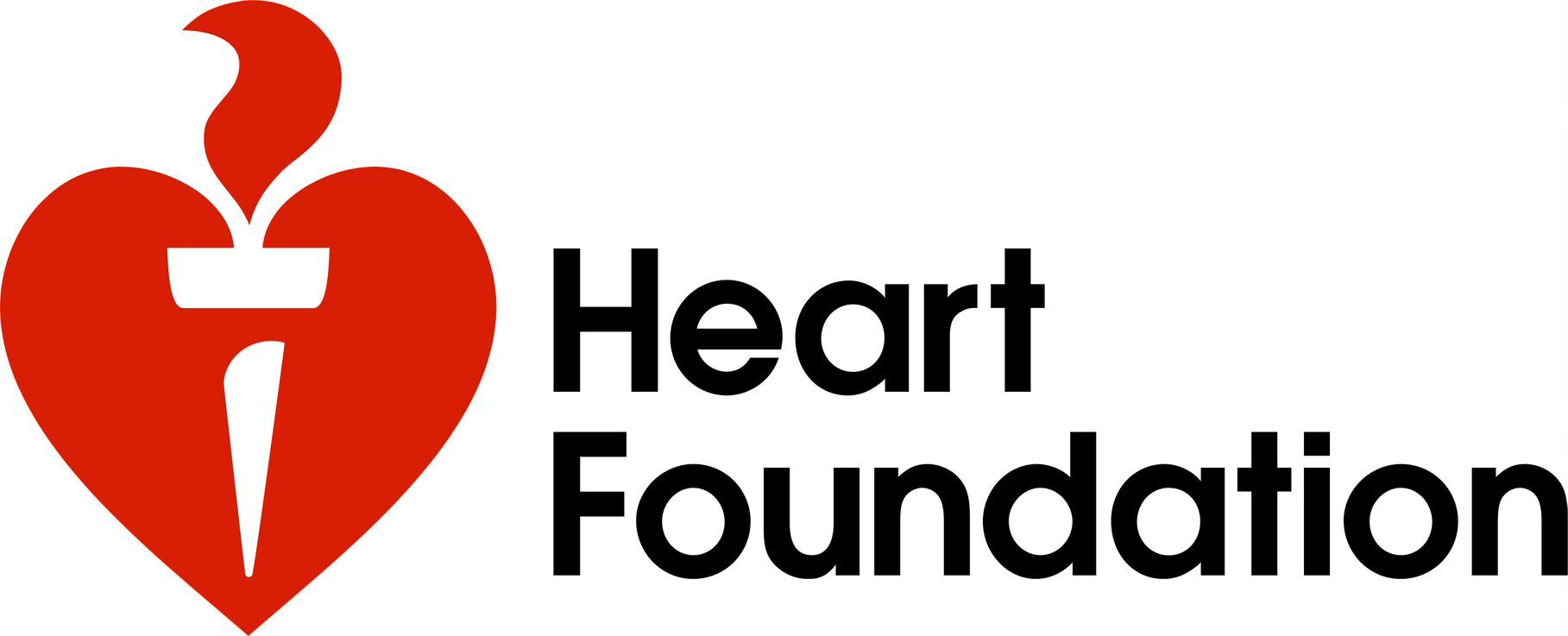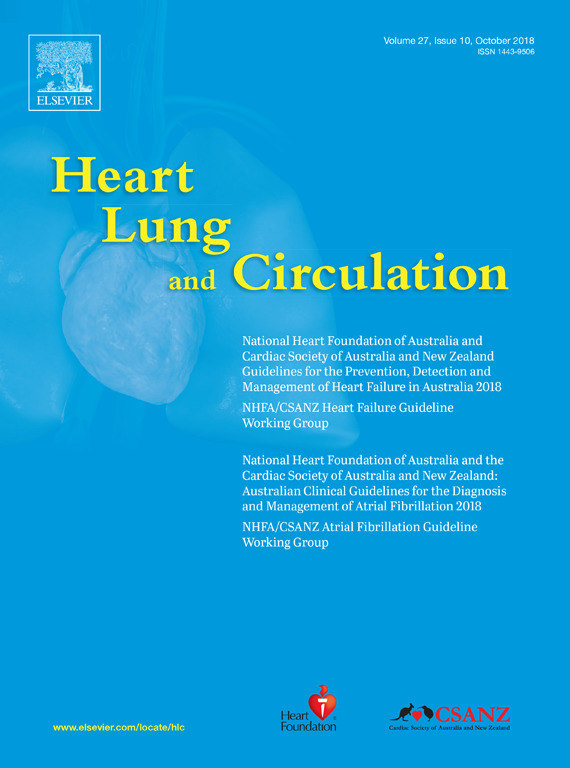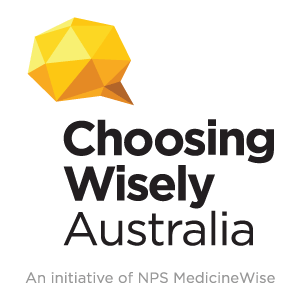For consumers, check out: Know your heart

The NPS MedicineWise program on heart failure has been developed in collaboration with the National Heart Foundation of Australia.
Key points
- Heart failure affects 480,000 Australians and is associated with high rates of hospitalisation and mortality. Only 50% of people with heart failure are alive 5 years after diagnosis.
- GPs are ideally placed to diagnose people with heart failure and provide effective treatments that reduce hospitalisations and save lives.
- An echocardiogram is the single most important investigation in heart failure to confirm the diagnosis and classify heart failure as reduced or preserved ejection fraction (HFrEF or HFpEF) to guide management.
- ACE inhibitors, heart failure beta blockers and mineralocorticoid receptor antagonists (MRAs) have all been shown to improve prognosis for people with HFrEF, reducing all-cause mortality by 56% over 1–3 years when a medicine from each class is taken in combination at target doses.
- Start heart failure medicines at low doses and gradually up-titrate one at a time to target or maximum tolerated doses, usually doubled every 2–4 weeks.
- People with heart failure can gain substantial benefit from education, self-management including action plans, and referrals such as multidisciplinary services and Home Medicines Reviews (HMRs).
Videos: Heart failure
Cardiologist John Atherton discusses how GPs can make a difference
A/Prof John Atherton Director of Cardiology at Royal Brisbane Women’s hospital discusses how the heart failure program will support GPs in the diagnosis and management of patients with heart failure.
Heart Foundation CEO John Kelly discusses the collaboration with NPS MedicineWise
Heart Foundation CEO John Kelly discusses the collaboration between the Heart Foundation and NPS MedicineWise on the latest educational program for heart failure, how we are helping health professionals and what resources are available.
MedicineWise News: Up-titrating heart failure medicines – a practical guide

The up-titration of heart failure medicines to target or maximum tolerated doses for people with heart failure with reduced ejection fraction (HFrEF) can be challenging to put into practice.
Following the pathways and guidance described in this article can make it more straightforward for GPs to up-titrate heart failure medicines, particularly for the large group of patients with HFrEF who are relatively well and who usually do not experience adverse effects requiring a change to up-titration doses.
Focus on heart failure

How much do you regard heart failure as a condition that needs your attention? Do you have a degree of resignation that there’s not much you can do about it for your patients? Experts advise and evidence shows however, that GPs are ideally placed to identify their patients with heart failure, provide effective life-saving therapy and be the gatekeepers to coordinated patient-centred care.
Guidelines for the Prevention, Detection, and Management of Heart Failure in Australia 2018

These guidelines have been developed by the National Heart Foundation of Australia and the Cardiac Society of Australia and New Zealand.
They provide guidance for health professionals across all disciplines, including in primary care, on clinical care for people living with heart failure based on current evidence and informed by other international guidelines and local clinical expertise.
Know your heart: Resources for your patients

RADAR
Dapagliflozin (Forxiga) for heart failure with reduced ejection fraction (LVEF ≤ 40%)
Australian Prescriber

Management of heart failure with preserved ejection fraction
Emma Gard, Shane Nanayakkara, David Kaye, Harry Gibbs
Aust Prescr 2020;43:12–17
Heart failure with preserved ejection fraction (HFpEF) is a highly heterogenous disease. Conventional therapies used in heart failure with reduced ejection fraction (HFrEF) are yet to show a mortality benefit for HFpEF. There is emerging evidence that treatment should be tailored to the individual’s associated comorbidities. Key treatment objectives include control of hypertension and fluid balance.
Choosing Wisely Australia

Choosing Wisely Australia helps healthcare providers and consumers have important conversations about improving the quality of healthcare by reducing unnecessary and sometimes harmful tests, treatments, and procedures.
Led by Australia’s colleges, societies and associations and facilitated by NPS MedicineWise, Choosing Wisely Australia challenges the way we think about healthcare, questioning the notion 'more is always better'.
5 questions to ask your doctor or other healthcare provider is a resource that can help patients ensure they end up with the right amount of care.

The NPS MedicineWise program on heart failure has been developed in collaboration with the National Heart Foundation of Australia.
For your patients
NPS MedicineWise
This action plan helps people to identify the most important parts of their heart failure self-management to focus on and put into practice now.
This factsheet provides information about heart failure, what it means for daily life and provides 5 questions to ask GPs.
Heart Foundation
- Living well with heart failure
This booklet provides information about what heart failure is, its symptoms, self-management strategies and pharmacological management. - Heart failure
This video series provides information about what is heart failure, pharmacological management, psychological health and self-management. - Take action within 24 hours
This action plan encourages people to call the doctor, nurse or health worker within 24 hours if they experience certain symptoms. - My fluid plan
This action plan helps people record and plan their daily fluid intake. - Healthy weight action plan
This action plan helps people to learn more about maintaining a healthy weight and put a plan into practice. - Physical activity action plan
This action plan helps people determine how ready they are to be physically active and put a plan into practice. - Get started with more physical activity
This webpage provides information about doing physical activity and finding a Heart Foundation Walking Group.
Heart Online
- Physical activity and heart failure
This booklet is about heart failure and physical activity (exercise).
Queensland Health
- Living with heart failure: a guide for families and carers
This booklet supports those caring for someone with heart failure by providing information about the condition and tips on how to keep the carer healthy as well. - Medication to manage heart failure
This booklet provides information about heart failure medicines and how to use them safely.
Veterans’ MATES
- Veterans' Advice: Taking steps to live well with heart failure
This brochure provides guidance and practical advice for veterans living with heart failure including ‘talk to your GP about planning your care’, ‘do your daily checks’ and other steps regarding physical activity, fluid, salt and alcohol intake, quitting smoking and vaccinations.
For your Aboriginal and Torres Strait Islander patients
At NPS MedicineWise, we acknowledge the Aboriginal and Torres Strait Islander peoples as the traditional owners of the lands across Australia. We pay our respects to their Elders past, present and emerging.
- Weak heart
This video, produced by St Vincent’s Hospital Heart Health and the Heart Foundation, provides Aboriginal and Torres Strait Islander people with information about heart failure and its self-management. - Physical activity and heart failure: Helping your heart by being active
This booklet by Queensland Health provides Aboriginal and Torres Strait Islander peoples with information and practical guidance about heart failure and physical activity (exercise).
Resources in community languages
The Heart Foundation has a selection of heart health information brochures in a range of languages. You can find brochures on:
- Living well with chronic heart failure information sheet
- Living with heart failure: information to make you feel better
Clinical resources and tools
Heart Foundation
- Clinical fact sheet: diagnosis and classification of heart failure
This resource provides health professionals with the basics about making a clinical diagnosis and classifying heart failure according to left ventricular ejection fraction (LVEF). - Clinical fact sheet: pharmacological management of chronic heart failure with reduced left ventricular ejection fraction (HFrEF)
This resource provides health professionals an algorithm for the management of heart failure with reduced ejection fraction (HFrEF). It includes information about how to start and optimise pharmacological treatments for patients with HFrEF. - Smart Heart Guidelines App
This app provides health professionals with easy and free access to Heart Foundation and Cardiac Society of Australia and New Zealand clinical practice cardiovascular guidelines, including the 2018 heart failure guidelines.
Veterans’ MATES
- Therapeutic Brief: Taking steps to live well with heart failure November 2020
This article provides health professionals with information about optimising heart failure medicines, the importance of early follow-up after hospital discharge and partnering with their DVA Veteran patients/carers.
Queensland Health
- Heart Failure Medication Titration Plan
This plan provides health professionals with monitoring recommendations, information on medicines up-titration, a problem-solving guide and a printable plan to use with patients.
Practice gaps and patient experience
|
Reference |
Summary |
|
Howlett et al, 2018 |
This survey was completed by 346 GPs, cardiologists and nurses who manage patients with heart failure in six countries: Australia, Austria, Canada, Spain, Sweden and the UK. Results revealed multiple gaps over the spectrum of care, including:
|
|
Al-Omary et al, 2018 |
The first systematic review and meta-analysis of all-cause readmission and all-cause mortality for patients hospitalised with heart failure in Australia. Studies included were heart failure hospitalisations in Australia published between January 1990 and May 2016. The statistical analysis used a random effects model to pool proportions across the 13 included studies, which were 3 randomised controlled trials (RCTs) and 10 cohort studies. Results:
The authors advised that ‘urgent action is needed to reduce the human and financial costs associated with such high mortality and readmission rates.’ |
|
Jeon et al, 2010 The experience of living with chronic heart failure: a narrative review of qualitative studies |
A narrative review of 30 qualitative studies, mainly from the US and Sweden, of the experience of people living with heart failure, written by Australian-based authors. While published in 2010 (and focusing on research from 1990–2008), the general flavour is still considered to accurately reflect the experience of people today. It found the most prominent impacts of heart failure on a person’s everyday life includes social isolation, living in fear and losing a sense of control. |
Diagnosis
|
Reference |
Summary |
|
National Heart Foundation of Australia and Cardiac Society of Australia and New Zealand Guidelines for the Prevention, Detection, and Management of Heart Failure in Australia 2018 |
Chapter 5 provides a detailed description of the process of differential diagnosis for heart failure, including the Diagnostic Workup algorithm (Page 1145, Figure 2). 5.1 Dyspnoea, which includes a patient history and cardiorespiratory physical examination and blood tests, and Table 6 Table 7: Red flags 5.2 Diagnostic investigations for heart failure, which include blood tests and:
|
|
Parsons et al, 2020. |
The SHAPE study is a retrospective cohort epidemiological study based on analysis of non-identifiable medical records of 1.12 million active patients at 43 Australian general practices in 2013–18. Results for active patients included:
|
|
De Pasquale and Audehm, 2019 |
This article, published in Medicine Today, is written for a GP audience. It is accessible via a subscription or once-only payment. It provides an easy-to-read overview of the diagnosis of heart failure, largely based on the Guidelines for the Prevention, Detection, and Management of Heart Failure in Australia 2018. |
Pharmacological management
|
Reference |
Summary |
|
National Heart Foundation of Australia and Cardiac Society of Australia and New Zealand Guidelines for the Prevention, Detection, and Management of Heart Failure in Australia 2018 |
Chapter 7 provides a detailed description of the pharmacological management of heart failure, including the HFrEF Management algorithm (Page 1155, Figure 3). 7.1 Heart failure with reduced ejection fraction (HFrEF) (pages 1154 to 1161) includes medicines recommended for:
Selected patients
7.2 Heart failure with preserved ejection fraction (HFpEF), which is a much briefer section (half a page) including 5 points of practical advice. |
|
Burnett et al, 2017 |
This meta-analysis of 57 included randomized controlled trials (RCTs) found hazard ratios for medicines including ACEI, ARB, ARNI, heart failure beta blocker and MRA, either alone or in combinations of two or three versus prescribed to target doses versus placebo for all-cause mortality and 95% confidence intervals for patients with HFrEF (presented in Figure 5). The meta-analysis highlighted that the combination of an ACEI + heart failure beta blocker + MRA for patients with HFrEF had a 56% reduction in all-cause mortality compared to placebo: (hazard ratio 0.44 [95% CI 0.26 to 0.66]). This compared, for example, to 17% for ACEI alone and 43% for ACEI + heart failure beta blocker. |
|
Sindone and Driscoll, 2019 How to optimise therapy for heart failure with reduced ejection fraction |
This article, published in Medicine Today, is written for a GP audience. It is accessible via a subscription or once-only payment. It provides an easy to read overview of pharmacotherapy and device therapies that improve the prognosis for patients with heart failure with reduced ejection fraction (HFrEF). It is largely based on the Guidelines for the Prevention, Detection, and Management of Heart Failure in Australia 2018. |
Education, self-management, referrals and non-pharmacological management
|
Reference |
Summary |
|
National Heart Foundation of Australia and Cardiac Society of Australia and New Zealand Guidelines for the Prevention, Detection, and Management of Heart Failure in Australia 2018 |
Chapter 8 provides a detailed description of non-pharmacological management for heart failure. The main takeaways are the ‘Recommendations’ and ‘Practice Advice’: 8.1 Systems of Care to Reduce Rehospitalisation 8.2. Models of Care to Improve Evidence-Based Practice This section includes guidance on:
8.3. Frequency of Follow-up 8.4. Self-management This section includes self-monitoring education (see Practice advice) 8.5. Fluid Restriction and Daily Weighing 8.6. Sodium Intake Note that the guidance for heart failure applies the sodium intake guidance for the whole Australian population. If sodium intake is > 2 g/day for a specific patient, then intervention is recommended to reduce intake for that patient. 8.7. Exercise Training and Heart Failure |
|
Jonkman et al, 2016 |
An individual patient data meta-analysis of 20 included RCTs assessing the effectiveness of self-management interventions for people living with heart failure. It found reduced risk of time to the combined endpoint of heart failure-related hospitalisation or all-cause death (HR 0.80; 95% CI, 0.71 to 0.89) and time to heart failure-related hospitalization alone (HR 0.80; 95% CI 0.69 to 0.92). The Guidelines for the Prevention, Detection, and Management of Heart Failure in Australia 2018 state that this meta-analysis shows that ‘self-management interventions significantly prolonged the time patients spent out of hospital and stayed alive.’ |

